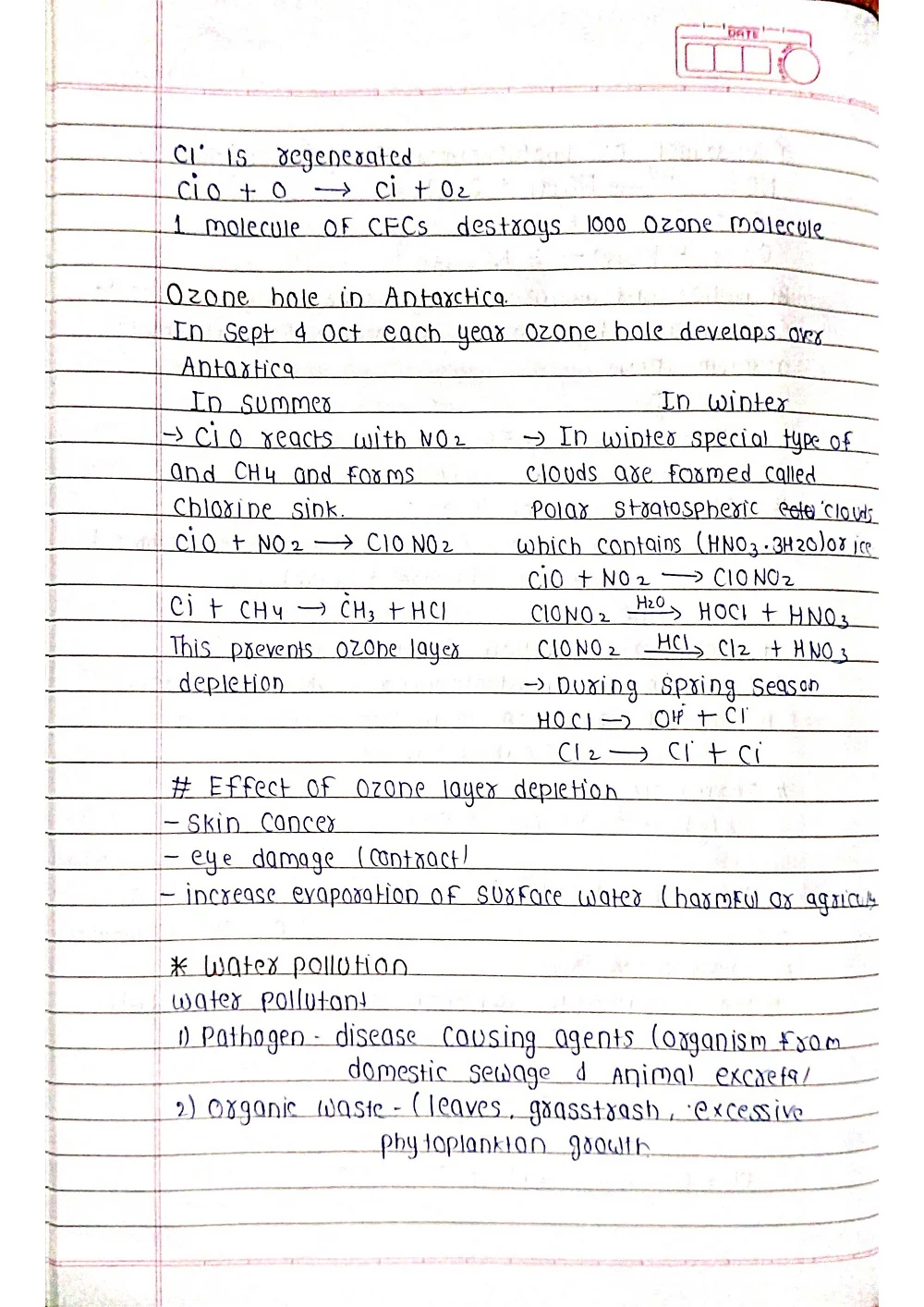Environmental chemistry is the study of chemical processes in the environment and their impact on living organisms. It examines how pollutants behave in air, water, and soil, their effects on ecosystems, and potential solutions to environmental problems.
Environmental Chemistry - Key concepts
- Air pollutants (smog, greenhouse gases)
- Water pollutants (industrial waste, pesticides)
- Soil pollutants (heavy metals, fertilizers)
➭ Biogeochemical cycles: The movement of elements (carbon, nitrogen, phosphorus) through the environment, influenced by human activities.
➭ Environmental monitoring: Tracking changes in environmental quality over time.
➭ Green chemistry: Designing and using chemicals that minimize environmental impact.
Environmental Chemistry - Important topics
➭ Air pollution: Sources, types (acid rain, smog), and effects on human health and ecosystems.
➭ Water pollution: Sources, types (point source, non-point source), and effects on water quality and aquatic life.
➭ Soil pollution: Sources, types (heavy metals, pesticides), and effects on soil fertility and plant growth.
➭ Climate change: Greenhouse gases, the greenhouse effect, and its impact on global temperatures and weather patterns.
➭ Ozone depletion: Causes (CFCs), effects on human health and ecosystems, and international efforts to protect the ozone layer.
➭ Waste management: Different types of waste (solid, hazardous), disposal methods (landfills, incineration, recycling), and sustainable waste management practices.


![Environmental Chemistry - Short Handwritten Notes [PDF]📚 Environmental Chemistry - Short Handwritten Notes [PDF]📚](https://blogger.googleusercontent.com/img/b/R29vZ2xl/AVvXsEhIhJPV_5Ut9CPuY4K4Bfplss3xx3ciXqEuUhCVZssoOhOTPhJSrf-c4e6wp6uoFHvQ5TkxggaJQGUj58e4SD4eLLZYLBrkh8WCqvEqF51dHIxW9lz05g4Kzo7hzrPZ2qDdB2wWpJwzjXt3oB8R6N-6Y1k2uDMM952gMkTzF3lBOSALLvng7ieNdg4odto/s16000-rw/Environmental%20Chemistry%20-%20Short%20Handwritten%20Notes%20%5BPDF%5D%20%F0%9F%93%9A.jpeg)

![Environmental Chemistry - Short Handwritten Notes [PDF]📚 Environmental Chemistry - Short Handwritten Notes [PDF]📚](https://blogger.googleusercontent.com/img/b/R29vZ2xl/AVvXsEjZTrbo59ABhPOmiVDA43QiDecdKnZUempyAAK8Bd1dUROgzkMqvTsQTyaXCwoOWDZ844j33kfK8hQlfFn58Bkogw56XA5GWIqAYvsobN0RpnbwOPZzOQDfIDY9WDD79horJkhJZMzZZxnc1Ip-oRQNVdF8uIz0NMKzH1AMW7ArX0Hn2Oet1tQOkn9fR5g/s16000-rw/Environmental%20Chemistry%20-%20Short%20Handwritten%20Notes%20%5BPDF%5D%F0%9F%93%9A.jpeg)








